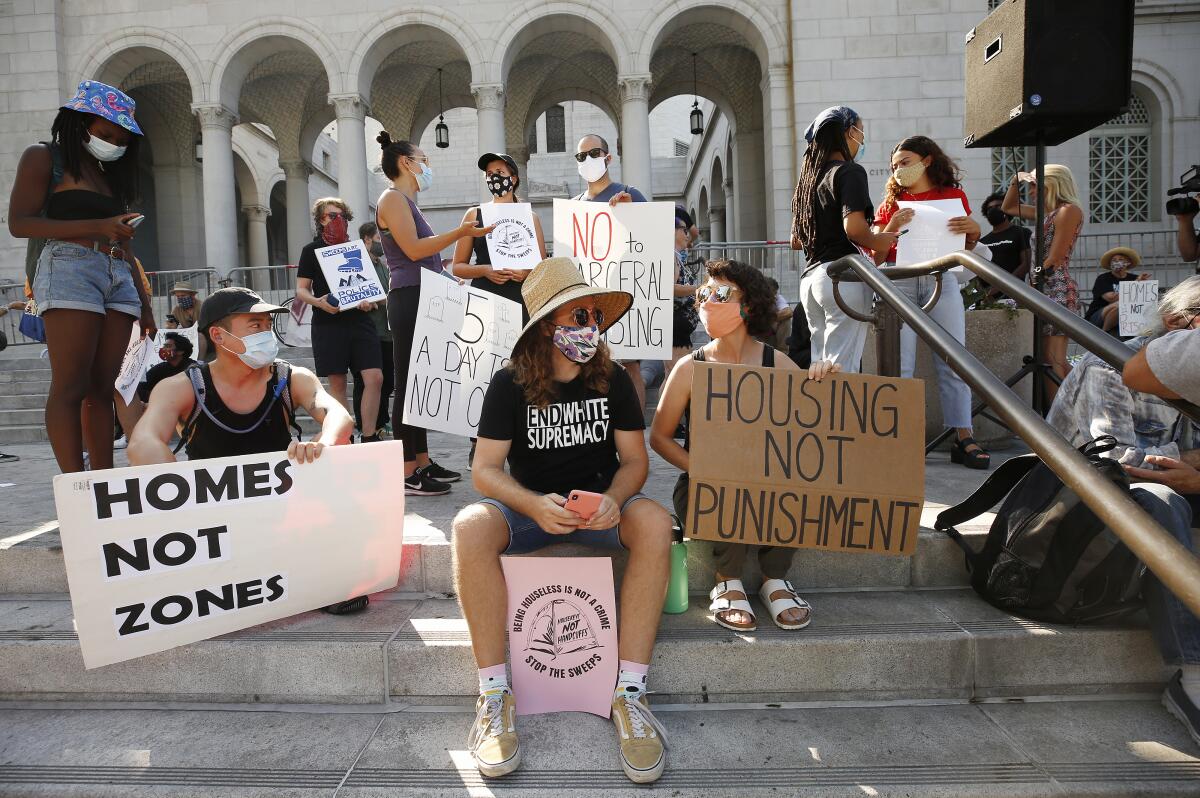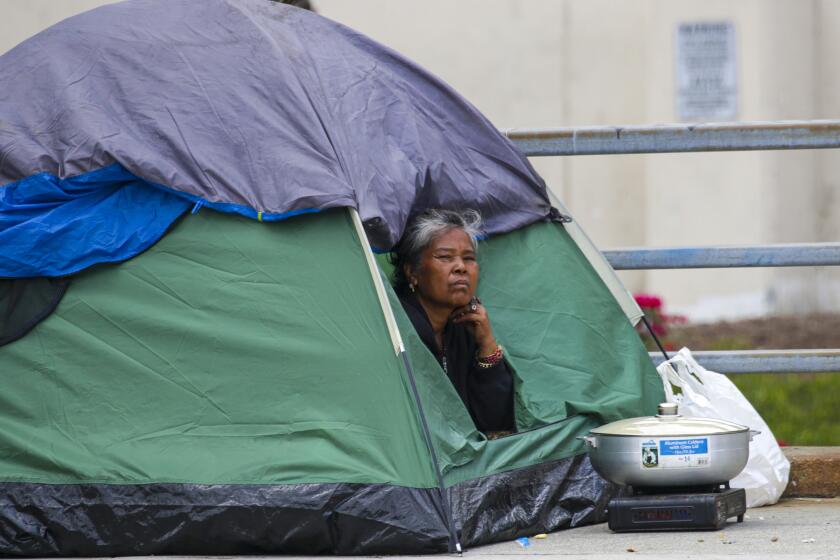Formerly homeless people want a larger voice in decisions, more respect, report finds

- Share via
They were all once homeless. Now they work within the system as advocates, case managers and advisors.
And they say that their experience is too often taken for granted.
“People with lived experience are not recognized at the top, executive level,” one said. “We get brought in because people want to just hear our stories. But when it comes to implementation, decisions are made by those who don’t know what it’s like to be homeless. ... I can’t have someone who doesn’t even know how to have a conversation with me decide where I get to lay my head at night.”
The 19 men and women told their stories in three focus groups commissioned by the Committee for Greater L.A., a coalition of civic leaders who are grappling with proposals for “sweeping systems change” to improve the lives of vulnerable and marginalized communities in Los Angeles.
A report released Wednesday led with the obvious: What’s needed most is more affordable housing, more rental subsidies, better coordination between service providers and government agencies, more sense of urgency and better data.
But what brought out their passion was the perception that the system needs more people like them and needs to take them more seriously and pay for their experience on a par with a college degree.
“Case managers need more lived experience, not just folks with bachelor’s degrees in social work,” one respondent said. “We were homeless once, and we had to advocate for ourselves. So, we know we can help someone else in a similar position. Case managers fresh out of college have a higher turnover rate.”
The authors declined to provide names with the published comments, some of which suggested resentment toward their own organizations.
“It can’t be a token position,” one said. “If someone disagrees with lived expertise, then there should be a conversation and evidence to back up their argument. Even if we don’t speak the same language, we should be in the culture of discussing together.”
The settlement is aimed at ending a long-standing legal battle around homelessness in the city of Los Angeles.
The focus groups were conducted by the Redstone consulting firm and the Corp. for Supportive Housing.
Corp. for Supportive Housing senior program manager Ann English, who recruited the focus group participants, said she is familiar with the ambivalence many expressed about how the system treated them.
“There is a tension between the fact that people are incredibly grateful to be housed,” English said. “They realize people are overworked on their behalf and they also have had experiences that were unpleasant or felt belittling or diminishing. Just because they’re grateful doesn’t mean they should not be treated with dignity at all times.”
One participant recalled case managers lack of empathy.
“I had depression; I wasn’t stabilized on my medication, but case workers didn’t understand,” the person said. “They kept saying I wasn’t being grateful for the resources I was being given.”
Others credited caring case managers for their success.
“Once I established a trusting relationship with a case manager, I started changing,” said a respondent who became isolated, depressed and suicidal after becoming homeless at age 22. “I didn’t have family and I didn’t understand independent living. I think supporters are very important for guiding someone like me. They make you want to work on yourself, and not mess up and end up on the streets again.”
The report was the third commissioned by the Committee for Greater L.A.
In February it published the results of a series of focus groups finding that Angelenos are profoundly angry over the condition of the streets, disturbed by the human suffering taking place on them and frustrated with the inability of government to do anything about it. They want elected officials to set realistic goals, pursue tough policies and hold themselves accountable.
Under the leadership of Miguel Santana, president and chief executive of the Weingart Foundation, the committee also underwrote a massive 2020 analysis that proposed dismantling “structures designed to maintain the privileged by intentionally excluding and marginalizing others” and “prioritizing how resources will be directed in order to achieve a more accountable Los Angeles driven by outcomes centered on racial equity.”
More to Read
Sign up for Essential California
The most important California stories and recommendations in your inbox every morning.
You may occasionally receive promotional content from the Los Angeles Times.








